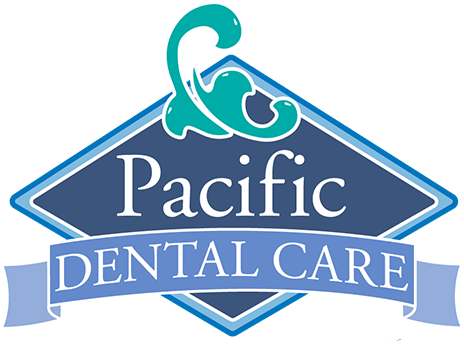Family Dentistry
The Perfect Place for Your Family's Care
Benefits Of Family Dentistry:
- Our team is trained to treat patients of all ages, so you can rest assured that your family is in the hands of an expert
- Get all of your dental health needs taken care of under one roof
- Continuance of care allows you to develop a personal relationship with your dentist throughout the years
- General and preventive services help you and your family maintain healthy smiles
When you step into Pacific Dental Care in Pleasanton, CA, you'll know you've found the perfect place for your family's care.
Our team loves helping kids grow into healthy adults. Our doctors will create a positive dental experience for your children because we understand that early dental encounters can influence a child’s impression of dentistry for a lifetime. You can be sure your child will have a great experience at Pacific Dental Care.
The services offered at Pacific Dental Care ensure that patients of all ages feel welcome. From the earliest check-ups to orthodontic evaluations, our doctors will listen to your concerns and guide you through every stage.
Helping Master Their Personal Care
Dental health during teen years offers another set of challenges. For most parents, this doesn't come as a big surprise. A dizzying number of changes strike during these formative years, and parents often experience a few frustrations along the way.
But teens listen more than we realize, and pestering parents can make a tremendous difference in the dental future of these young adults. Oral home care habits tend to slide, sometimes to the point of complete neglect. Increased independence may lead to eating and drinking habits that harm oral and overall health. Don't underestimate any encouragement given to help your teen avoid the long-term effects of cavities and gum inflammation.
Preventive visits every six months provide us with an opportunity to coach your teen and reinforce the efforts you're making with them. Sometimes the rapport we establish in a professional, yet friendly, setting proves especially effective. Plus our doctors can share problems with them through visual aids while reinforcing any positive efforts they're making.
Tips for home efforts that protect your teen's dental health:
- Limit sodas and energy drinks. Sugary carbonated drinks are the number one cause of tooth decay in adolescents. Many 20 ounce bottles of soda contain 18 teaspoons of sugar in an extremely acidic liquid. The combination can be devastating for teeth.
- Encourage brushing before bedtime. Night hours can be especially harmful as the mouth dries out and bacterial plaque flourishes.
- Explain the dangers of sharing toothbrushes. Teens love to share everything, even toothbrushes. The bacteria that cause gum disease and cavities can easily transfer from one person to the next through this method.
- Slip in dental floss or a toothpick with their lunch or backpack. This can be a subtle reminder for your teen to quickly clean their teeth after snacks or lunch at school.
At Pacific Dental Care in Pleasanton, CA, we want to help your teen maintain optimal oral health. We are happy to answer any questions or provide additional educational materials to help your teen's smile last a lifetime.
The perfect place for your family's care.
It's easy to ignore, but a little bit of tooth decay or gum disease always leads to a little bit more. However, one thing is certain. If left untreated, it almost always results in pain, emergency treatment, and tooth loss. So why does this happen?
It's an infection.
Millions of bacteria swim around in our mouths. Many of them are harmless, and some are even beneficial. But a few love nothing more than to eat away at the hard and soft tissues of the mouth. Like all living creatures, they need an energy source. Sugars are their snack of choice, and they use simple carbohydrates from our diet to manufacture energy.
Like all living creatures making energy, they also produce waste. These acidic wastes deposited on the teeth erode the hard surfaces, weaken the enamel, and form holes known as cavities.
Some bacteria produce a toxic waste that causes bleeding gums, and the destruction of bone around the teeth, which is called periodontal disease. Periodontal disease is the leading reason people lose their teeth and end up with dentures.
Most infections can be treated with antibiotics, but mouth bacteria require a different approach. Regular checkups help us identify new cavities, and periodic cleanings remove plaque and tartar that harbor millions of harmful bacteria. High-risk patients benefit from a customized approach with our team, and we have many methods to strengthen weakened enamel that has not yet developed into decay.
The complex cycle of inflammation and infection extends beyond the gums and mouth. In fact, research continues to uncover the many ways that our oral health affects the overall health of our bodies including heart health, and can influence medical conditions such as arthritis, diabetes, and even some types of cancer. For example, mouth bacteria enter the bloodstream through inflamed and bleeding gums. Like a river, blood flow carries the bacteria to the small vessels of the heart and brain. Here they can damage the intricate vessel lining, leading to blockage of the vessel. Heart attack or stroke can result because of bleeding gums.
A few tips for maintaining a healthy mouth:
- Brush for at least two minutes, twice a day and floss at least once a day: It sounds like a long time, but it makes a difference. Consider an electric toothbrush with a built-in timer or set a timer on your phone. If you don't like to floss, consider toothpicks, proxabrushes or the magic of a Waterpik.
- Rinse your toothbrush thoroughly and replace every three months: Bacteria linger on your toothbrush, finding their way back into the mouth at the next use.
- Drink sugar-heavy liquids through a straw: A straw helps keep sugar from bathing the teeth directly before swallowing.
- Drink water after eating a meal: Water helps clean larger deposits of food from your teeth. Plus, we all could use a little more hydration!
- Get cavities treated immediately: Cavities rarely hurt until they reach a critical stage. And don't forget: a little bit of tooth decay eventually becomes a little bit more.
- See your hygienist every six months: The risk of critical dental problems diminishes significantly if you're visiting us twice a year. Patients that fit preventive dentistry into their schedule and budget typically enjoy fewer dental visits and expenses over time than those who wait for emergencies to develop.
At Pacific Dental Care, in Pleasanton, CA, we want to help our patients maintain optimal oral health. Remember to stay up on your preventive dental cleanings and check ups to keep your smile healthy and beautiful.
More Than Just Baby Teeth
Preventative care is one of the simplest and most important ways to make sure your child’s teeth grow in strong and healthy. Giving them the proper tools and teaching them the right way to brush when they are young lays the groundwork that will create healthy habits they will carry with them into adulthood.
Most children have two cleanings a year, but children with a higher risk of caries may need more frequent visits.
During a checkup, your child’s hygienist will clean their teeth and, if necessary, take x-rays and give your child a fluoride treatment. Our doctors will perform an exam and review if any treatment is needed.
At Pacific Dental Care in Pleasanton, CA, we believe that early dental encounters can influence a child’s impression of dentistry for a lifetime. We will ensure your child's preventive visits are a comfortable, positive experience.
Time to Straighten Up
A variety of tooth and jaw issues can be resolved through orthodontics. Our doctors may point out that your child's baby teeth appear crowded, or the relationship between the upper lower teeth isn't ideal. While it’s not generally a time for treatment, it may help you prepare for the possibility of future corrective care. As permanent teeth start to appear, usually around age 6, our doctors will monitor the child's development and determine if early orthodontic intervention is needed.
Although many orthodontic wearers are teenagers, braces play a role for some children in their earlier years. Since permanent teeth are typically larger than baby teeth, space may need to be opened with the gentle force of braces or a device called a palatal expander. This allows adult teeth to move into place correctly, helping avoid more extensive treatment later.
A narrow jaw or a large overbite may create a similar dilemma. Gently guiding your child’s jaw growth while they are developing can make a tremendous difference down the road. Once the growth stops during teen years, the only corrective measure often involves surgery which is always a scenario to avoid when possible.
The Usual Track
Many youngsters benefit from orthodontics after the baby teeth have fallen out and the permanent teeth have moved into place. This classic case may start in the early teen years, leaving a nicely aligned and highly functional set of teeth as your teen enters adulthood. The length of time spent wired-up can vary, but average treatment time often falls around two years.
Orthodontic treatment can solve almost every possible bite issue, but success relies on good patient compliance. Wearing elastic bands consistently, keeping follow-up appointments for adjustments, and practicing outstanding home care can lead to a positive outcome. This commitment involves frequent preventive visits with your hygienist as well, a strategy that helps avoid permanent staining from weakened enamel and cavities around brackets. Pacific Dental Care in Pleasanton, CA specializes in helping our orthodontic patients enjoy a successful outcome: a gorgeous, healthy smile.
Patient Testimonials
-

Manny E.
Our family has been going to Pacific Dental Care for a decade! They’re welcoming, on-time and professional. Unlike me as a child, my three children love going to see Dr. Bueno and staff. They’ve taken the time to get to know them (us). More importantly, from the hygienist to Dr. Bueno’s dental care, our dental health is great because of their thorough examination and careful completion of procedures when needed. Highly recommend them!
- Gloria S, Google Review
Reviews 
Slide title
My family has been with Dr. Selleck for more than a decade. He's very personable, always asks about my family and truly embraces preventive dental care. Alicia and Ellen are fantastic hygienists. As a safety professional I appreciate their commitment to Cal OSHA compliance. Highly recommend.
-Mat M, Google Review
Button

